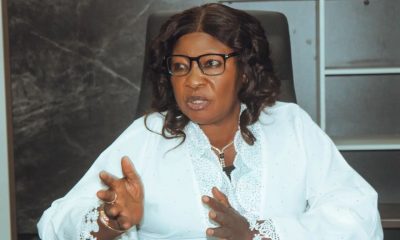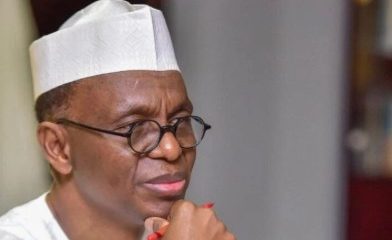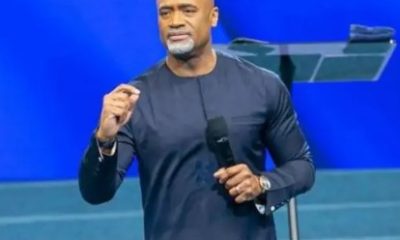The highly anticipated keynote address by Dele Kelvin Oye, Esq., the President of the Nigerian Association of Chambers of Commerce, Industry, Mines, and Agriculture (NACCIMA), took place during a prominent business gathering.
The event, attended by leading entrepreneurs, business executives, policymakers, and other stakeholders, provided a platform for thought leadership and discussions on Nigeria’s economic policies, challenges, and opportunities.
Dele Kelvin Oye, Esq., is a well-respected figure in Nigeria’s business community.
As the President of NACCIMA, one of the largest and most influential business organizations in the country, Oye has played a crucial role in advocating for policies that promote business growth, investment, and economic development.
His leadership at NACCIMA has focused on enhancing Nigeria’s global trade relations, supporting small and medium enterprises (SMEs), and pushing for reforms in sectors such as industry, mining, and agriculture.
In his keynote speech, Oye provided a comprehensive analysis of Nigeria’s current economic landscape, focusing on the key policies and reforms introduced by the government.
He acknowledged the difficult realities facing businesses and citizens, particularly the impacts of inflation, rising costs of living, and the removal of fuel subsidies.
National Daily Newspaper confirmed that he pointed out that many Nigerians have been pushed deeper into poverty due to these reforms, with a significant portion of the population struggling to afford basic goods.
Oye emphasized that inflation, driven by the increased prices of goods and services, acts as a de facto tax on the public. He expressed concern over how such economic policies can harm business growth and hinder long-term development if not properly managed. He urged the government to consider the broader consequences of policy decisions, particularly on businesses that are already grappling with an unstable economic environment.
As the President of NACCIMA, Oye also used the occasion to highlight the association’s critical role in supporting Nigerian businesses, especially small and medium-sized enterprises (SMEs). NACCIMA, under his leadership, has remained committed to advocating for favorable business policies, ensuring that Nigerian businesses, both large and small, are better equipped to navigate the economic challenges.
NACCIMA’s activities span various sectors including trade, agriculture, mining, and industry, and it has formed alliances with other local and international chambers of commerce to ensure that Nigeria’s economic interests are well-represented on the global stage.
Oye reiterated NACCIMA’s stance that business growth is essential for national development, and emphasized the need for a stable policy environment to encourage investment and innovation.
One of the key points in Oye’s address was the critique of Nigeria’s management of its oil and gas resources. He pointed out that the country’s dependence on oil revenues has contributed significantly to economic instability.
Oye highlighted the use of Nigeria’s oil resources to back loans, a practice that, according to him, has led to a rising debt burden without corresponding benefits for the economy.
He specifically criticized the lack of transparency in oil revenue management, noting that while the government borrows against oil resources, the details of these transactions are often opaque.
He called for greater accountability and transparency in the management of the nation’s natural resources, and stressed that reforms in the oil and gas sector are necessary for Nigeria to achieve sustainable growth.
Oye also acknowledged the ongoing reforms in various sectors, particularly those related to infrastructure, housing, agriculture, and youth employment.
He recognized the efforts made by the government to implement policies aimed at improving the business environment, but cautioned that these reforms need to be more carefully executed to ensure their long-term effectiveness.
He stressed that sustainable policies are essential for addressing Nigeria’s economic issues, and that short-term fixes, like cash transfers, are not enough to address the systemic problems that many Nigerians face.
Oye highlighted the importance of creating policies that prioritize long-term growth, encourage foreign direct investment, and ensure that resources are allocated in a way that benefits the population as a whole.
Oye also made a direct appeal to the media present at the event.
ALSO READ : NPC collaborates with AIG-Imokhuede foundation to boost public sector efficiency
He urged journalists and editors to continue to raise awareness of the challenges facing Nigerian businesses and the broader economy.
He emphasized the role of the media in holding the government accountable and ensuring that critical issues are not ignored.
By staying engaged with issues of national importance, Oye argued, the media can play a vital role in sustaining the momentum for reform and ensuring that policies serve the best interests of all Nigerians.
In conclusion, National Daily Newspaper confirmed that the Speaker’s keynote address was both a reflection on the current state of the Nigerian economy and a call for continued collaboration among the private sector, government, and civil society.
He urged all stakeholders to work together to address the pressing challenges facing Nigeria, particularly those related to economic mismanagement, the oil sector, and the implementation of pro-business policies.
His address resonated strongly with the audience, as it underscored the need for careful planning, transparency, and sustainability in Nigeria’s approach to economic development. Oye’s message was clear: while reforms are necessary, they must be implemented in a way that ensures long-term benefits for the country’s businesses and citizens alike.
National Daily Newspaper gathered that the event ended with a sense of optimism that with continued dialogue and collaboration, Nigeria can overcome its economic challenges and pave the way for a more prosperous future for all Nigerians.
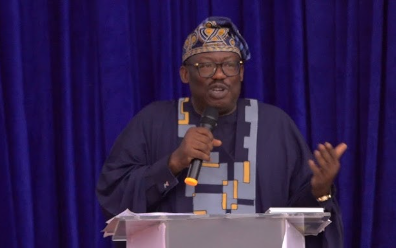
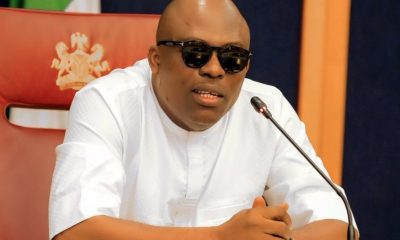
 News1 week ago
News1 week ago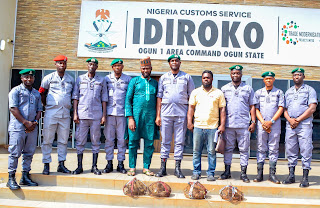
 Agribusiness1 week ago
Agribusiness1 week ago
 Football5 days ago
Football5 days ago
 Football1 week ago
Football1 week ago
 Football1 week ago
Football1 week ago
 Entertainment4 days ago
Entertainment4 days ago
 Football6 days ago
Football6 days ago
 Football6 days ago
Football6 days ago



